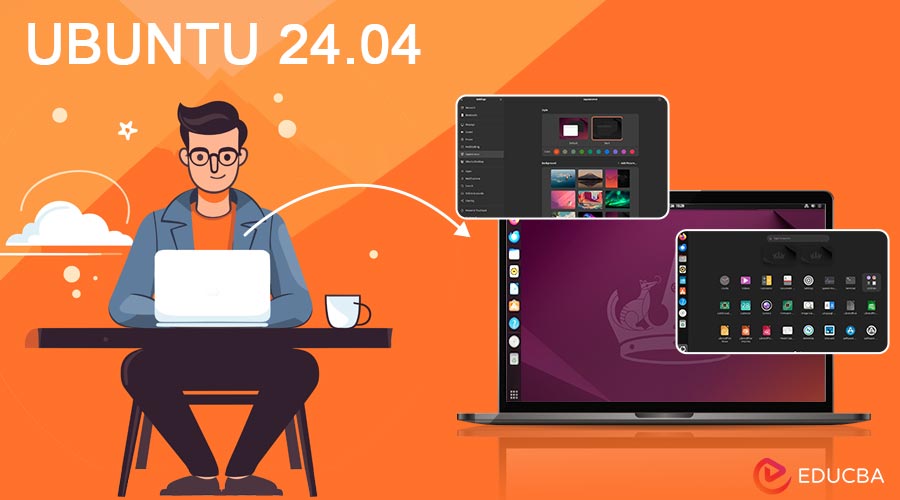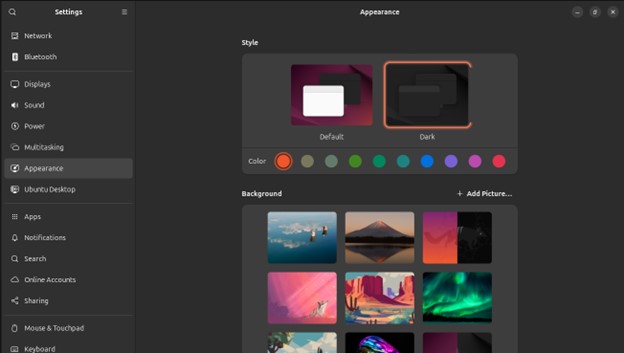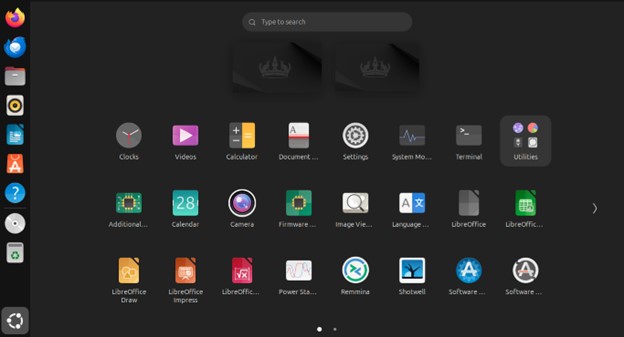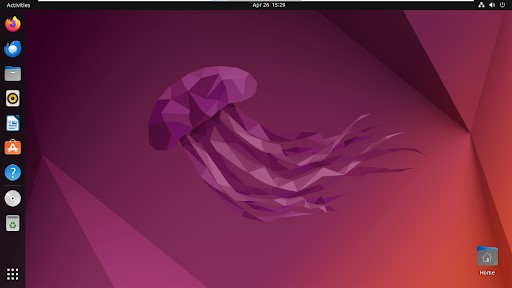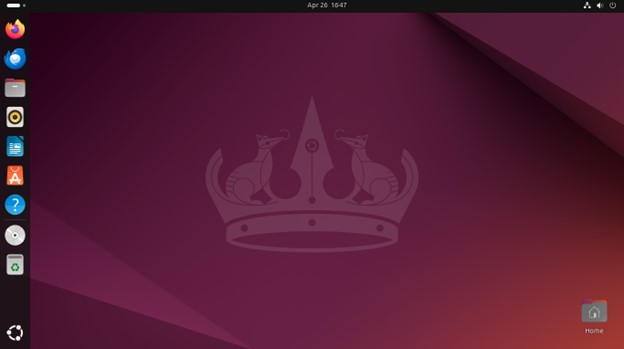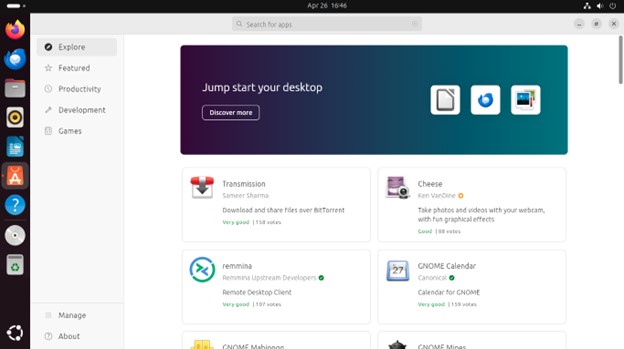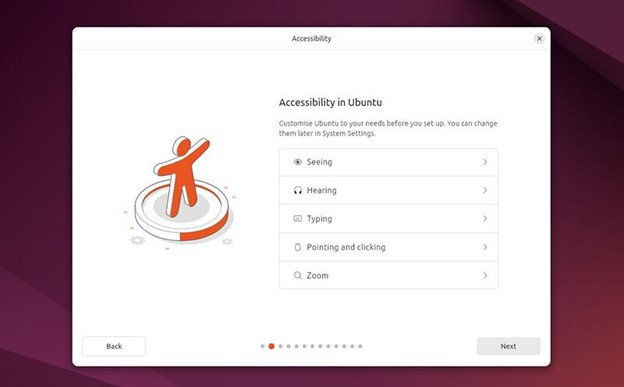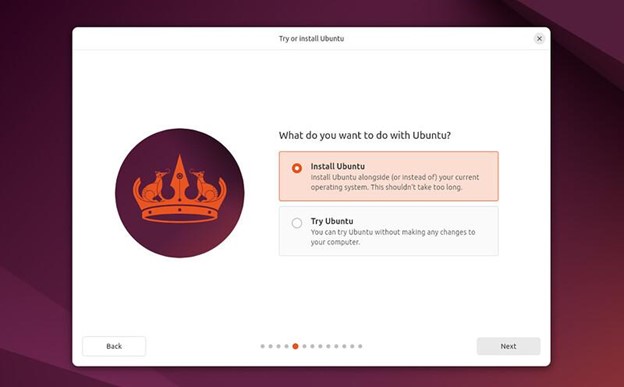Introduction
Ubuntu 24.04, codenamed “Noble Numbat,” is the latest long-term support (LTS) release, offering extended support for five years. This version is designed to cater to both experienced Linux users and newcomers, with a focus on ease of use and a streamlined experience. It builds upon its solid foundation with numerous improvements, enhancing the user experience, performance, and security. Ubuntu’s reputation for user-friendliness and robust performance is further solidified with this release, marking it as a significant player in the open-source world. Its technical advancements and commitment to an accessible and inclusive computing environment are key highlights, shaping the future of Linux distributions.
Table of Contents
- Introduction
- Improved User Interface
- Enhanced Performance and Stability
- New Desktop and Updated App Centre
- Enhanced Productivity Tools
- Accessibility Improvements during installation
- New Installer with Automation Options
- Community Contributions and Feedback
- Performance and Developer Focus
- Support duration for Ubuntu 24.04 LTS
Improved User Interface
New Default Theme and Icons
- Yaru Dark: Ubuntu 24.04 introduces a refined default theme called Yaru Dark. This sleek, dark color palette not only gives a modern look to the desktop environment but also provides a comfortable viewing experience. The design team has also updated the icons to match the overall aesthetic, enhancing the visual appeal of Ubuntu 24.04.
- Consistent Design: Canonical has worked on ensuring a consistent design language across system apps, menus, and notifications. The result is a more polished and cohesive visual experience.
Window Management and Workspaces
- Dynamic Workspaces: Ubuntu 24.04 enhances workspace management by allowing dynamic creation and removal of workspaces. Users can easily add or remove workspaces based on their workflow. This feature is handy for multitasking and organizing different tasks.
- Improved Alt+Tab Switcher: The Alt+Tab switcher now displays application previews, making it easier to identify and switch between open windows. It’s a small but impactful improvement in productivity.
Enhanced Performance and Stability
1. Faster Boot Times
- Systemd Improvements: Ubuntu 24.04 benefits from enhancements in the systemd initialization system, resulting in optimized boot times. Whether you’re running Ubuntu on a traditional hard drive or a speedy SSD, you’ll notice the difference during boot. Additionally, Canonical has fine-tuned memory usage across the system, making Ubuntu 24.04 more efficient even on systems with limited RAM.
- Parallelization: The boot process now takes advantage of parallelization, allowing critical services to start concurrently. This approach reduces the time it takes for your system to become usable after powering on.
2. Reduced Resource Usage
- Memory Efficiency: Canonical has fine-tuned memory usage across the system. Ubuntu 24.04 consumes fewer resources, making it more efficient even on systems with limited RAM.
- Lightweight Desktop Environment: The developers have optimized the default GNOME 46 desktop environment for better performance. Whether using a high-end workstation or a modest laptop, Ubuntu 24.04 ensures a smooth experience without unnecessary resource overhead.
3. Stability Improvements
- Bug Fixes: Canonical’s development team has diligently addressed bugs and issues reported by the community. These fixes enhance overall system stability and reliability.
- Long-Term Support Commitment: As an LTS release, Ubuntu 24.04 receives ongoing maintenance and security updates for five years. This commitment ensures that your system remains stable and secure throughout its lifecycle.
4. Security Enhancements
- AppArmor Profiles: Ubuntu 24.04 includes updated AppArmor profiles for applications, providing better isolation and protection against potential security threats.
- Kernel Hardening: The Linux kernel in Ubuntu 24.04 benefits from security hardening measures, making it more resilient against vulnerabilities.
New Desktop and Updated App Centre
GNOME 46 Desktop Environment
- GNOME 46: Ubuntu 24.04 LTS ships with the latest version of the GNOME desktop environment, specifically GNOME 46. This update brings several enhancements, including improved notifications, better performance, and a more modern look and feel.
- Below is the image of the Ubuntu 22.04.04 desktop environment
- Below is the image of Ubuntu 24.04 LTS
Linux Kernel 6.8
- Kernel Upgrade: Ubuntu 24.04 features the brand new Linux 6.8 kernel. This kernel version includes performance optimizations, security enhancements, and support for newer hardware. Users can expect better overall system responsiveness and compatibility.
Improved Power Management
- Better Efficiency: Canonical has worked on power management improvements, ensuring that Ubuntu 24.04 is more energy-efficient. Whether using a laptop or a desktop, you’ll notice better battery life and optimized resource usage.
Updated App Center
- Flutter-based Interface: Building upon the foundation in previous releases, the App Center in Ubuntu 24.04 leverages Flutter, a modern framework known for its smooth performance and visually appealing design. This translates to a more responsive and visually pleasing experience when browsing applications.
Enhanced Productivity Tools
Developer-Focused Toolchains
- Python 3.12: Ubuntu 24.04 LTS includes the latest Python version, providing developers access to new features and improvements.
- Ruby 3.2: Ruby developers can leverage the updated Ruby version for their projects.
- PHP 8.3: PHP developers benefit from the enhanced performance and features of PHP 8.3.
- Go 1.22: The Go programming language receives an update, ensuring developers can access the latest tools and libraries.
Performance Engineering Tools
- Linux 6.8 Kernel: Ubuntu 24.04 LTS delivers the latest Linux kernel with improved syscall performance, nested KVM support, and access to the bcachefs filesystem.
- Frame Pointers: All 64-bit architectures enable frame pointers by default. Performance engineers can now easily profile their systems using accurate flame graphs for troubleshooting and optimization.
- bpftrace and Profiling Tools: Tracing with bpftrace is standard in Ubuntu 24.04 LTS, providing site reliability engineers with essential resources for monitoring and diagnosing system performance
Accessibility Improvements during installation
Screen Readers and Magnification Tools
- Orca Screen Reader: Ubuntu 24.04 includes the Orca screen reader, which provides spoken feedback for visually impaired users. During installation, users can enable Orca to narrate the installation process to them. This feature ensures that individuals who rely on screen readers can independently install Ubuntu.
- Magnification Options: The installation interface now offers built-in magnification tools. Users can enlarge text, icons, and other elements for better visibility. This is particularly helpful for low-vision users or those benefitting from larger fonts.
Keyboard Navigation
- Keyboard Shortcuts: Ubuntu has optimized the installation process for keyboard navigation. Users can navigate through menus, select options, and proceed without relying on a mouse, ensuring a smoother experience for individuals who prefer keyboard input.
New Installer with Automation Options
- Flutter-Based Installer: The new installer uses Flutter, a UI framework known for its cross-platform capabilities. It provides a modern and consistent experience across different devices.
- Automated Installations: Ubuntu 24.04 now supports automated installations, making it easier for system administrators and power users to deploy Ubuntu on multiple machines. You can create preseed files with configuration settings, allowing for unattended installations.
- Improved Partitioning: The installer offers better guidance during disk partitioning, ensuring users make informed choices. Whether you’re installing alongside an existing OS or doing a fresh install, the process is more intuitive.
Containerization and Cloud Integration
- Docker Support: Ubuntu 24.04 LTS continues to support Docker, a popular containerization platform. Docker allows developers to package applications and their dependencies into lightweight containers.
- Kubernetes: While Kubernetes is not included by default in Ubuntu 24.04, it’s straightforward to set up Kubernetes clusters using tools like kubeadm or managed Kubernetes services from cloud providers. Ubuntu’s compatibility with Kubernetes ensures seamless integration for container orchestration.
- Cloud-Init: Ubuntu 24.04 LTS supports cloud-init, for instance, initialization. Administrators can seed custom configuration files on developer machines, creating standardized Ubuntu environments. This approach is more robust than existing import/export workflows and paves the way for future management and compliance tooling.
Community Contributions and Feedback
Feedback-Driven Features
- Installer Improvements: The new Flutter-based installer was refined based on user feedback to enhance the installation experience. Community input helped identify usability issues and led to iterative improvements.
- Accessibility Enhancements: Community requests influenced the inclusion of an Orca screen reader, high-contrast themes, and keyboard navigation during installation. Ubuntu aims to be inclusive, and community feedback directly shapes accessibility features.
Performance and Developer Focus
Latest Linux Kernel (6.8) for Improved Hardware Support and Security
- Enhanced Syscall Performance: Ubuntu 24.04 LTS leverages improvements in syscall performance, resulting in faster execution of system calls.
- Nested KVM Support: For users running Ubuntu on PowerPC architecture (ppc64el), the kernel now supports nested Kernel-based Virtual Machine (KVM) instances. This feature enhances virtualization capabilities, allowing for more efficient resource utilization.
- Low-Latency Kernel Features: Canonical has merged low-latency kernel features into the default kernel. These optimizations reduce task scheduling delays, leading to smoother performance, especially in real-time and multimedia applications.
- Frame Pointers Enabled: Frame pointers are enabled by default on all 64-bit architectures. Performance engineers can now create accurate flame graphs for profiling and troubleshooting, which aids in identifying bottlenecks and optimizing system performance.
- Intel QuickAssist Technology (Intel QAT): Canonical collaborated with Intel to integrate Intel QAT for the first time in an LTS release. Intel QAT accelerates encryption and compression tasks, reducing CPU utilization and improving networking and storage performance on newer Intel Xeon Scalable processors.
Security Enhancements
- Restrictions in Ubuntu 24.04 LTS: In Ubuntu 24.04 LTS, all applications allow unprivileged user namespaces but deny access to any additional permissions within the namespace. This balance will enable applications to handle the default restriction gracefully while protecting against abuse of user namespaces to gain access to additional attack surfaces.
- Buffer Overflow Detection: Ubuntu 24.04 LTS enables FORTIFY_SOURCE=3 in the gcc compiler. This enhances the detection of potential memory management vulnerabilities, providing more robust protection against various exploit techniques.
- AppArmor 4.0 Release: Ubuntu 24.04 LTS includes the latest AppArmor 4.0 release. Noteworthy features include specifying allowed network addresses and ports within the security policy (beyond high-level protocols) and conditionals for expressing more complex policies.
- Defer Access Control Decisions: AppArmor 4 defers access control decisions to a trusted userspace program. This enables advanced decision-making by considering the greater context within userspace or interacting with system administrators in real-time. For example, the experimental snapd prompting feature leverages this capability.
- Disabling Old TLS Versions: Ubuntu 24.04 LTS forcefully disables TLS 1.0, 1.1, and DTLS 1.0 for applications using the underlying openssl or gnutls libraries. This measure prevents potential TLS downgrade attacks and guarantees that users do not encounter vulnerabilities linked with outdated TLS versions.
Support duration for Ubuntu 24.04 LTS
- Ubuntu 24.04 LTS offers standard support for five years. Ubuntu Pro can extend this to 12 years, a subscription service ideal for enterprise deployments that require long-term stability and security updates.
Conclusion
Ubuntu 24.04 LTS brings a host of improvements, from a modernized desktop environment (GNOME 46) to enhanced security features. With a focus on performance, developer tools, and accessibility, it caters to both individual users and enterprise deployments. Whether you’re upgrading or installing fresh, Ubuntu 24.04 LTS offers stability, longevity, and a vibrant community. Explore its features, leverage its support options, and enjoy a reliable Linux experience for years.
Frequently Asked Questions (FAQs)
Q1. Is there a dedicated WSL edition for Windows users?
Answer: Yes! Windows users can explore the dedicated WSL (Windows Subsystem for Linux) edition of Ubuntu 24.04. WSL allows you to run Ubuntu alongside your Windows environment, providing seamless integration and access to Linux tools and utilities.
Q2. Can I upgrade to Ubuntu 24.04 LTS from an earlier version?
Answer: Soon after the release, Ubuntu 23.10 users will have the option to upgrade automatically to 24.04. However, when 24.04.1 LTS is launched on August 15, users of 22.04 LTS will also have the option to update automatically.
Q3. What are the system requirements for Ubuntu 24.04 LTS?
Answer: Ubuntu 24.04 LTS has modest system requirements, including a 2 GHz dual-core processor, 4 GB of RAM, and at least 25 GB of free disk space.
Q4. Can I run Ubuntu 24.04 LTS alongside another operating system?
Answer: Yes, Ubuntu 24.04 LTS supports dual-boot installations, allowing users to run Ubuntu alongside another operating system such as Windows or macOS. Users can choose their preferred operating system at boot time, enabling them to switch between environments as needed.
Recommended Articles
We hope that this EDUCBA information on “Ubuntu 24.04” was beneficial to you. You can view EDUCBA’s recommended articles for more information,
